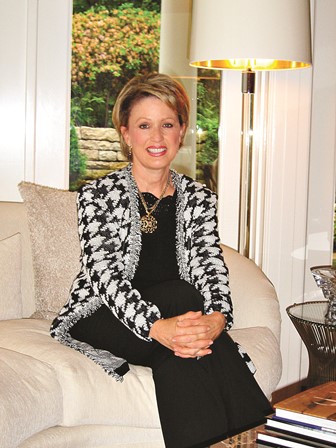Spotlight
Baylor Dallas Collaborates to Bring Parkinson's Research Project to Texas
May 2013
 Baylor University Medical Center is on the verge of bringing an innovative research project to patients with Parkinson's in the North Texas region thanks to the efforts and philanthropic support of Darlene Cass, a long-time member of the Baylor community. Darlene was diagnosed with Parkinson's disease 15 years ago and has experienced first-hand what living with the syndrome is like. After receiving the devastating diagnosis, her symptoms were minimal until approximately two years ago when she experienced a significant decrease in energy, loss of balance, and slowness of movement. "I was at an all time low; the only thing my doctor could suggest as a treatment was brain surgery and that scared me."
Baylor University Medical Center is on the verge of bringing an innovative research project to patients with Parkinson's in the North Texas region thanks to the efforts and philanthropic support of Darlene Cass, a long-time member of the Baylor community. Darlene was diagnosed with Parkinson's disease 15 years ago and has experienced first-hand what living with the syndrome is like. After receiving the devastating diagnosis, her symptoms were minimal until approximately two years ago when she experienced a significant decrease in energy, loss of balance, and slowness of movement. "I was at an all time low; the only thing my doctor could suggest as a treatment was brain surgery and that scared me."
A short time later, a friend came across an article about a research project underway at the University of Wisconsin - Madison's Tactile Communication and Neurorehabilitation Lab (UW) focused on the improvement of motor symptoms. The scientists at UW were studying the use of a small device, called a Portable Neuromodulation Stimulator (PoNS), which is placed in the patient's mouth and stimulates nerves in the tongue that are connected to the brain. This type of stimulation is called neuromodulation.
UW scientists have significant data to show that the device, along with the prescribed physical, occupational and cognitive exercises, encourages the brain to recover normal function whether the reason for the disruption is traumatic, neurodegenerative or developmental. Each exercise corresponds with different patterns of tongue stimulation, which in turn coax the brain to form new neural pathways. These pathways remain active even after the stimulation has been removed, meaning the therapy can have lasting effects.
After many "phone calls, emails and some tears," Darlene learned that a participant had dropped out of the UW study and that there was a space available. She traveled to Madison for a 10 day trial combining use of the PoNS device with prescribed exercises. "Within three days my balance was better – I could walk on a treadmill at 3 miles per hour and didn't have to hold on to steady myself." She was so encouraged by her experience and her results during the trial that she immediately began to explore ways to bring this emerging treatment option to other patients in her situation. "Baylor is such a well respected hospital; I knew it would help to facilitate this device getting approval by the FDA if Baylor's researchers were involved."
As a result of her efforts, Baylor University Medical Center at Dallas and UW have agreed to partner to build a research study, led by Elmyra Encarnación, M.D., using the PoNS neuromodulation device at Baylor. While the researchers at UW have done significant work on the use of this device on multiple sclerosis patients, Baylor will take the lead in studying this therapy in patients with Parkinson's disease.
"There are hundreds of patients afflicted with Parkinson's disease in the Dallas area. Between the promise of helping these patients and the growing evidence and science that support the study of this device, the Baylor team has taken the initiative to further our knowledge on neuromodulation right in our own backyard."
The research project aims to restore the functions lost to Parkinson's disease by improving the brain's ability to reorganize its activity and allow the patient to regain muscle control. Dr. Encarnación describes the function of the PoNS device, which "stimulates nerves under the tongue that are connected to the brainstem, a particular brain area that plays a significant role in the pathology of Parkinson's disease." She went on to say, "Even though our primary aim in the study is to help the symptoms, we are hoping that positive results may encourage further studies to see if the device can actually modify the disease process."
Ultimately, more knowledge about the way this new form of intervention may have implications for both patients suffering from traumatic brain injury, stroke, Parkinson's and multiple sclerosis. As Darlene says, "My main goal is giving hope to others dealing with neurological disorders to have a better quality of life."
For more information about Baylor's neuroscience programs, contact Tim Moore at 214.820.7877 or Timothy.Moore@BaylorHealth.edu.
Read More